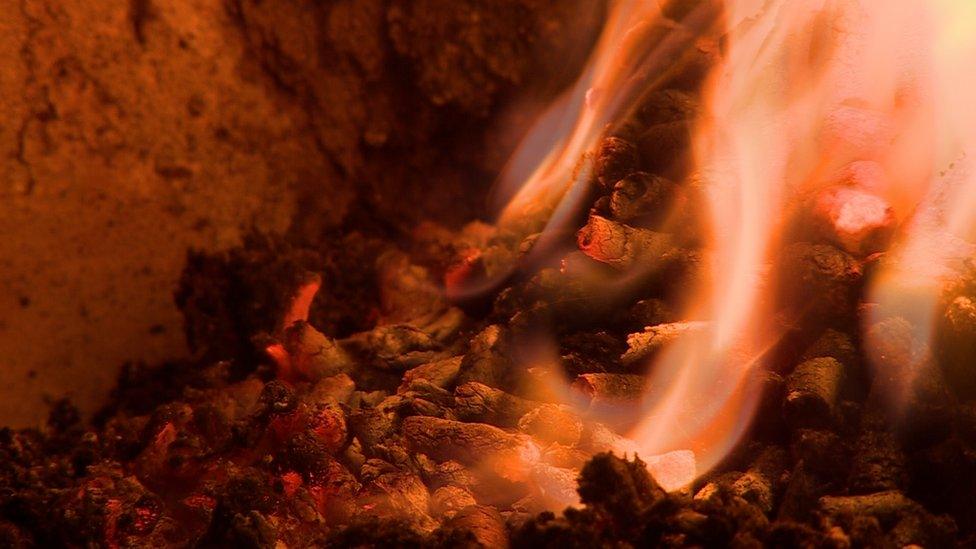Renewable Heat Incentive scheme: Key questions from the inquiry
- Published
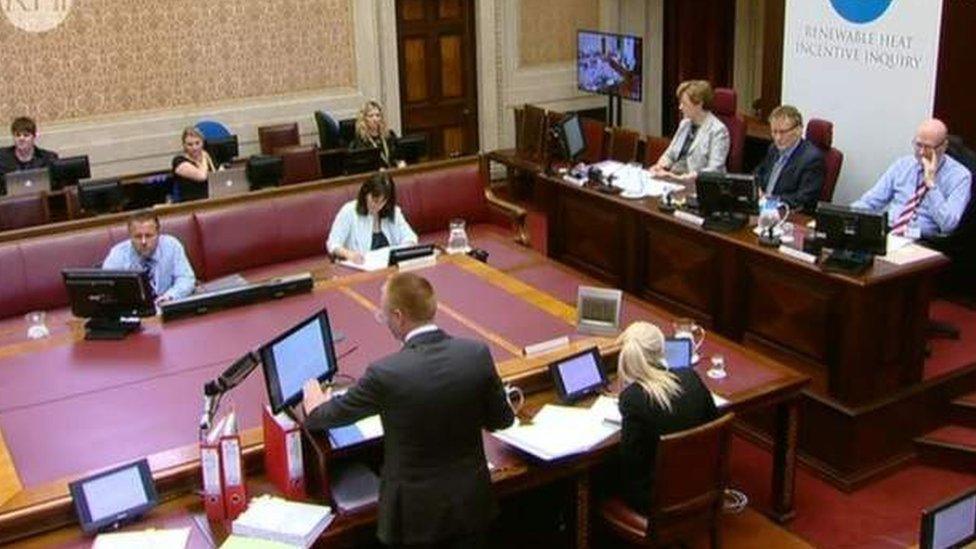
Three years after it was established, the Renewable Heat Inquiry is issuing its report.
The venue is Stormont, where the political institutions collapsed in 2017 in the wake of the scandal.
BBC News NI looks at the key questions that emerged at the inquiry that was set up to look into the RHI scheme.
Why were cost controls delayed?
By May 2015, the cost of RHI was causing concern - payment commitments were double the available budget of £11m. Officials planned tariff changes and sent them for the approval of new Economy Minister Jonathan Bell in July. He'd taken over from Arlene Foster. It would be mid-November before they were introduced.
In September, October and November a total of 900 firms piled into the scheme - doubling the boilers in the scheme. The so-called "spike".
A former DUP special adviser (Spad), Timothy Cairns, claimed that in delaying cost controls in summer 2015, he was acting on the direction of DUP "super Spad" Timothy Johnston and in concert with Mrs Foster's then adviser Andrew Crawford - something both men denied.
Civil servants felt the DUP was delaying. Senior officials talked of being treated as the "opposition" as they sought to effect change and felt DUP Spads did not want to "hobble" what they believed was a good scheme.
The DUP insists it wasn't done to benefit supporters. It says no-one who got an RHI subsidy was on a register of party donors who gave more than £500 to the party.
What did government departments know and when?
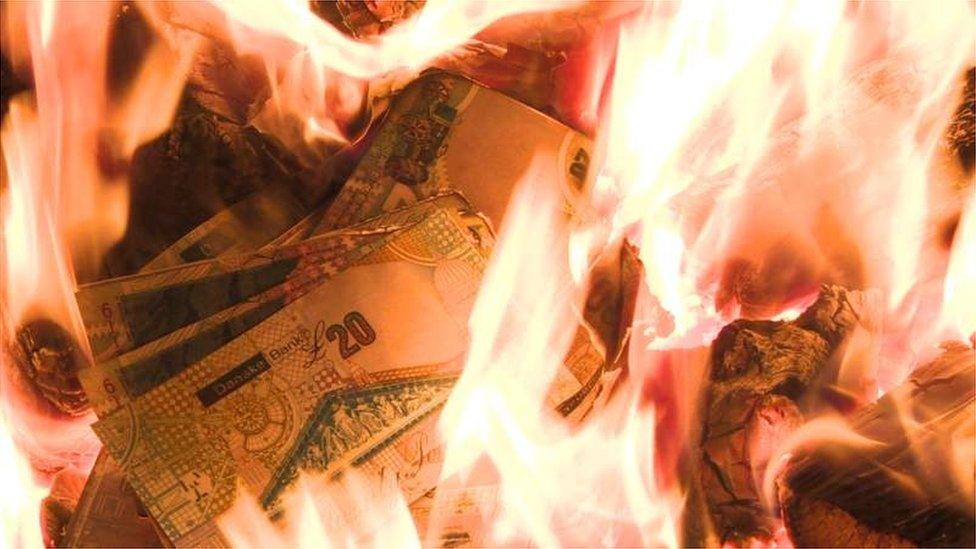
The Department of Enterprise, Trade and Investment (Deti) was in charge of the scheme; the Department of Agriculture promoted it because it was good for farming.
However, these departments were not communicating properly.
The Department of Agriculture promoted the scheme to farmers but didn't flag how lucrative it was with Deti.
Agriculture understood within eight months of its launch just how generous the payments were and that the payback on boilers was just over two years - leaving 18 years of lucrative payments
It promoted biomass at 58 events between November 2011 and October 2015. Invest NI also had information as part of energy audits of businesses that showed heavy heat usage. But that wasn't shared with Deti, which Invest NI was part of.
The biomass industry quickly worked out how lucrative RHI was and promoted it vigorously. Installers denied there'd been a conspiracy of silence and said it wasn't their job to second guess a government scheme.
What was the role of Moy Park?
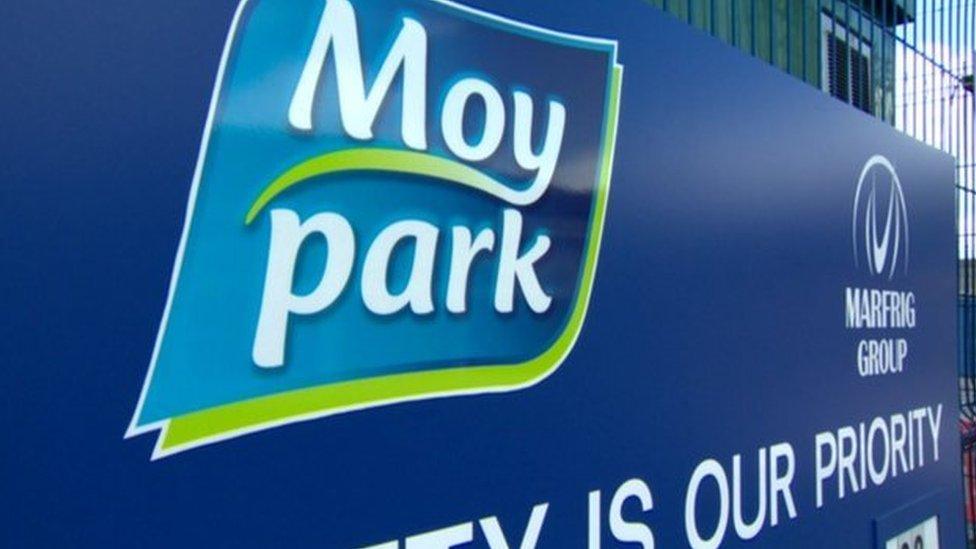
Moy Park poultry producers were the main beneficiaries of the over-generous subsidy scheme
Multinational poultry company Moy Park was undergoing a big expansion between 2010-2018 to increase production from 4m to 6m birds a week.
It promoted RHI to growers because it was good for the birds and returned a lucrative income.
Moy Park was also getting an indirect benefit. It was underpaying the heating part of farmers' production costs - saving the company money - with farmers using RHI income to make up the slack.
Moy Park analysis showed that on its farms there were some 770 boilers that, between them, accounted for about half the projected 20-year total scheme cost of £1.12bn.
Moy Park was also being passed information by Deti officials and DUP Spad Andrew Crawford.
Why wasn't the scheme closed sooner?
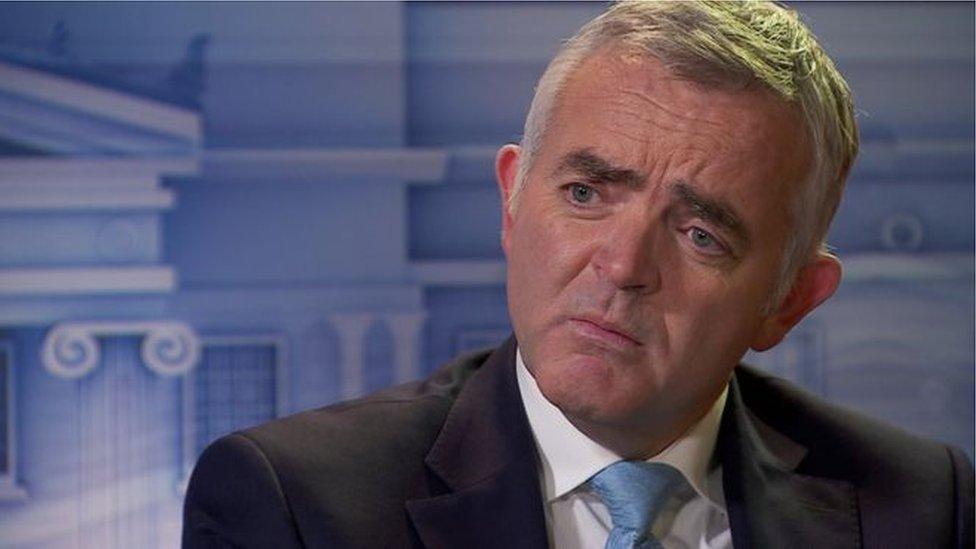
Former DUP minister Jonathan Bell took over responsibility for the RHI scheme from Arlene Foster
The cost controls of November 2015 weren't enough to rein in the runaway spend, so the scheme had to close and that started in January 2016.
Enterprise Minister Jonathan Bell told the BBC's Stephen Nolan Show he'd wanted to shut it quickly, but was overruled by the Office of the First and Deputy First Minister (OFMDFM).
He said his decision of 22 January 2016 that it should be shut in mid-March was pulled within half an hour by DUP special advisers who felt the issue was so controversial it needed OFMDFM approval. By then Mrs Foster was first minister.
On 5 February, the executive agreed to close the RHI scheme immediately and without consultation - with 15 February the earliest possible date.
But after an industry outcry, a two-week extension to 29 February was agreed between the DUP and Sinn Féin- and announced in the assembly by Jonathan Bell on 9 February.
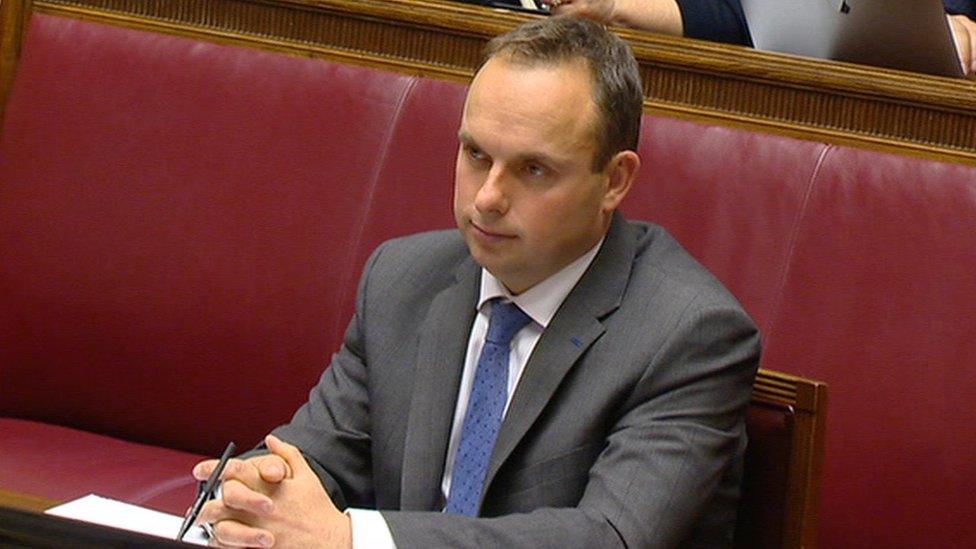
Dr Andrew Crawford has already appeared before the RHI inquiry to give evidence on several occasions
What about the role of Spads?
Special advisers - or Spads - were trusted ministerial assistants, party members paid from the public purse who became temporary civil servants and were subject to civil service rules.
Ministers were meant to appoint them from a pool of suitable candidates but, the inquiry heard, the DUP appointed theirs from the centre.
It led to claims that Spads' loyalty was to the party not their employing minister.
Arlene Foster leant heavily on her Spad Andrew Crawford. She didn't read the technical documents around policy decisions and relied on him to do so. He didn't do it either, relying on civil service submissions to cover the key points of new policy.
Mrs Foster said she did not know about his extensive contacts with Moy Park or that he'd sent confidential policy documents to the firm and members of his family, something, she says, he shouldn't have done.
When it came to the actions of her Spad she said she was "accountable but not responsible".
The inquiry also heard Sinn Féin had circumvented Stormont legislation designed to debar advisers with criminal convictions. At least one senior figure continued to work in the system but was paid from party funds not public ones.
What about Sinn Féin?
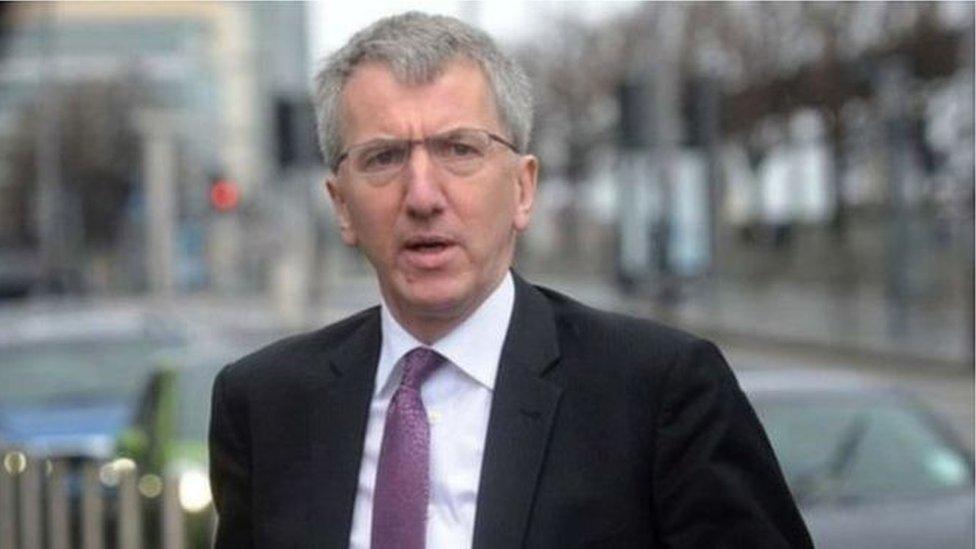
The closure of the scheme brought Máirtín Ó Muilleoir before the inquiry
The closure of the scheme brought former Finance Minister Mairtín Ó Muilleoir of Sinn Féin before the inquiry.
It emerged he'd been communicating with senior republicans about the best ways to close the scheme. He denied he'd been seeking their permission, but rather was communicating his decisions.
He said the party had set up a "crisis committee" as the scandal unfolded and senior republican Ted Howell, a long standing adviser to Gerry Adams and a key backroom figure had been brought out of retirement to chair it.
He had also been communicating with senior Belfast republican Padraic Wilson, a former "officer commanding" of IRA prisoners in the Maze.
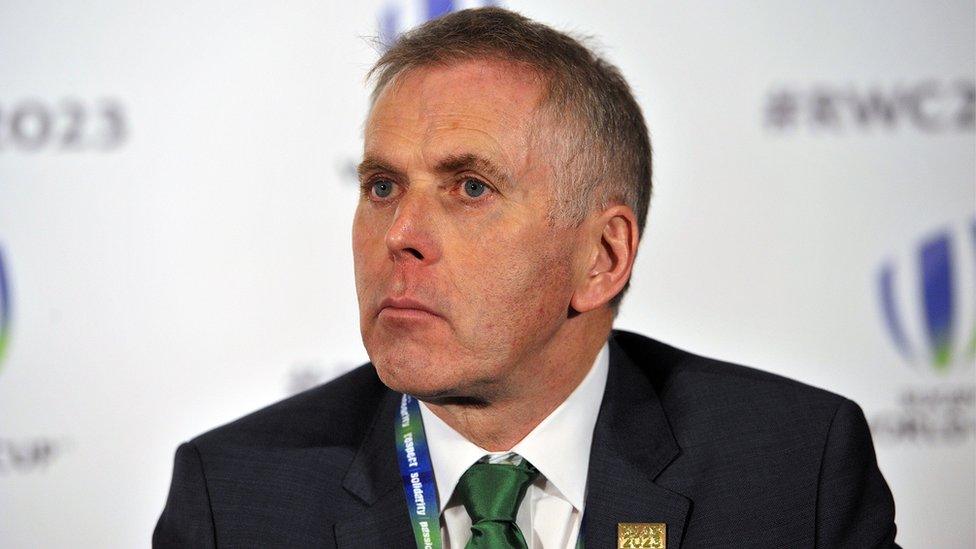
Head of the NI Civil Service David Sterling apologised profusely for its failings
How did the civil service perform?
Its reputation has been left in tatters. The civil service is meant to provide continuity of government but senior official Andrew McCormick told the inquiry they'd been made to look "unimaginative, leaden-footed and slow witted".
Meetings with ministers and special advisers were open-door and un-minuted. It meant there was no clear record of decisions taken and a reliance on ministerial submissions to set out policy intentions.
And there weren't enough civil servants; of those that were there, they were often generalists not specialists with an overreliance on bought-in consultancy advice.
The head of the Northern Ireland Civil Service (NICS), David Sterling, a man who was in charge of the Enterprise Department when most of this debacle unfolded, said: "Those failings have meant that, in its management of the RHI scheme, the NICS has failed to live up to its obligation to act as a responsible steward of the public purse."
What now?
The New Decade, New Approach document , externalthat brought about the restoration of Stormont suggested that the ill-fated RHI scheme would be shut down and replaced with different incentives to decarbonise heat.
However, that would be an issue for farm businesses that embraced the technology extensively, especially the poultry sector.
The deal restoring Stormont came three years after the collapse of Northern Ireland's political institutions on foot of the RHI crisis.
- Published4 February 2020
